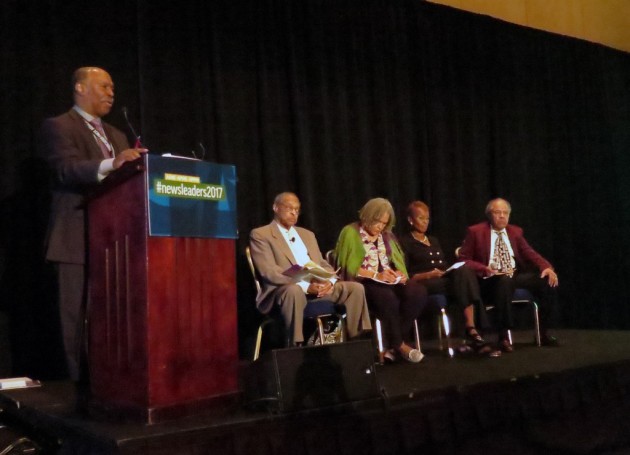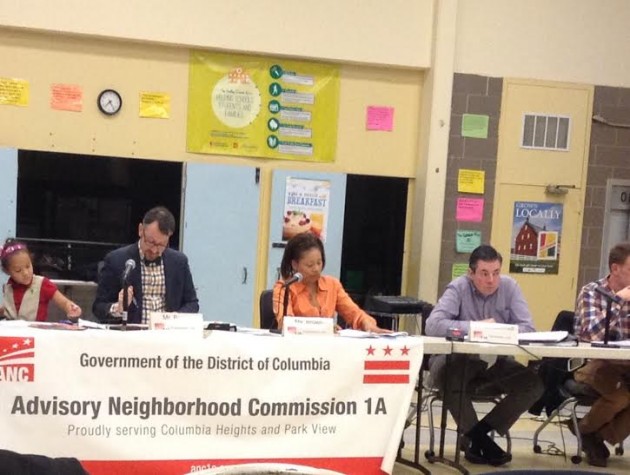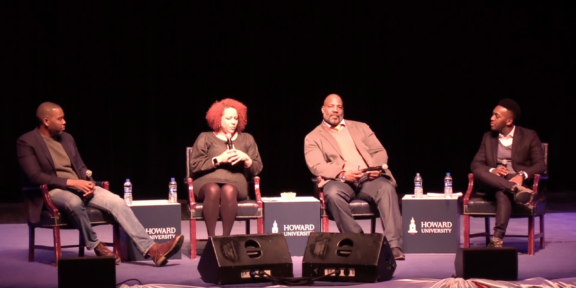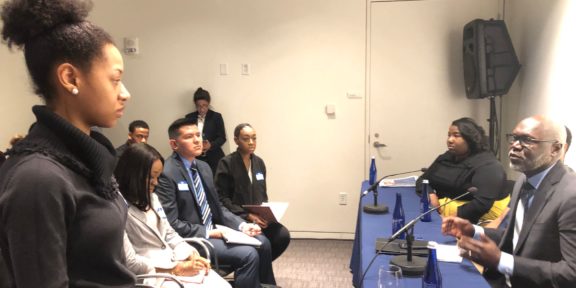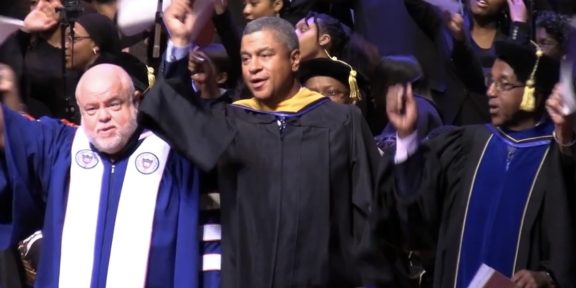While acknowledging that there has been progress in the last 50 years, several journalists who have been in the industry for decades said that there was still work to be done to increase diversity.

Panelists (left to right) Richard Prince (moderator); Paul Delaney, Charlayne Hunter-Gault. Dorothy Bulter Gilliam and Albert E. Fitzpatrick participate in the Kerner Commission, 50th Years Later panel held at the Marriott Wardman on Tuesday, October 10, 2017. Photo by Cheyenne Majeed.
This sentiment was expressed by former editors and reporters at '50 Years Later', a presentation and panel held in D.C. this week.
“We no longer want to hear the term, we can’t find any qualified," Albert E. Fitzpatrick, retired vice president for diversity at Knight Ridder and former executive editor of the Akron Beacon, said.
The panel revisited the historical events within the 1968 Kerner Commission report. “The people who were rioting were perceived as criminals like the people today who are totally innocent and perceived as criminals,” said Charlayne Hunter-Gault , who helped train African American reporters in the first program to help meet the Kerner Commission’s recommendations.
Also known as the National Advisory Commission on Civil Disorders, the report shed light on the difficulties within African American communities in order to prevent further racial violence and divisions. This commission was formed by President Lyndon B. Johnson after the 1967 race riots.
In the journalistic realm, job opportunities came far from easy for African Americans. Individuals on the panel said the treatment of minorities in America translated to the newsroom. “It’s been a challenge in this industry. I have devoted most of my career to minorities,” Fitzpatrick said.
The individuals on the panel consisted of Paul Delaney, former senior editor and reporter in Washington, Chicago and Madrid for The New York Times, Dorothy Butler Gilliam, the first black female reporter at the Washington Post and assistant editor and columnist and Charlayne Hunter-Gault, who worked at The New Yorker, The New York Times and the “PBS NewsHour.”
Despite some progress made, the panelists believe journalists today should focus on truth and fair reporting.
“If you want to be a journalist, you have to understand all the changes in our society, ” said Fitzpatrick.

